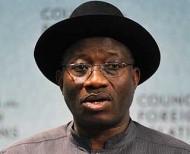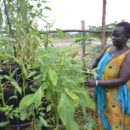African sovereign wealth funds prospects – by Jolyon Ford, Oxford Analytica.

For sub-Saharan governments one largely unmentioned reaction to the fall of Libya’s Colonel Qadhafi earlier this year was their surprise at the scale of the country’s offshore sovereign wealth funds – now at the disposal of the Transitional National Council and/or its elected successor administration.
Nigerian President Goodluck Jonathan took his proposals for 2012 to the national assembly this week, but made no mention of the establishment of a Sovereign Wealth Fund (SWF) for the country. The idea has been on the table for a while – as it has also been in Angola.
Nigeria already has an Excess Crude Account, but its withdrawals during 2011 show that it tends not to treat it like a SWF. Whilst prices are currently elevated (at least for now), the idea of capturing and setting aside all revenues above a nominal price is, in principle, appealing. However, in Nigeria’s case it requires, among other things, reassuring state governments that Abuja’s management of such a fund would not affect the federal balance in ways adverse to any or all states.
Angola’s plans for a SWF were shelved during the 2008-09 financial crisis – these proposed establishing a reserve fund for oil, and potentially ring-fencing for future sovereign expenditure all revenues above a nominal ($68 a barrel) price. It remains to be seen whether (beyond the diversification and expansion activities of the Sonangol conglomeration) it will establish a SWF with the potential for a related degree of revenue transparency.
As it enters the production ranks, Ghana has sought to learn from Nigeria’s experience. As Timor-Leste did upon its independence in 2002, South Sudan has looked to Norway for assistance in setting up a non-politicised vehicle that could ring-fence excess hydrocarbon revenue for the future. With major oil and gas discoveries recently from Namibia and Mozambique to Uganda and Tanzania there exists a window of opportunity for the establishment of suitable mechanisms that can fulfil longer-term goals, providing buffers for commodities volatility and demographic change without unduly constraining the nearer-term expenditure needs and expectations.
Firms capable of offering such methods to ensure a more predictable investment-based future revenue stream will find a receptive audience – although one often pre-disposed to a shorter-term view. Those campaigning for revenue transparency and greater spread of wealth from resources will see discussions around setting up special purpose sovereign vehicles as an opportunity to bring these issues into greater public scrutiny.
Jolyon Ford is a senior analyst at Oxford Analytica, the global analysis and advisory firm.






